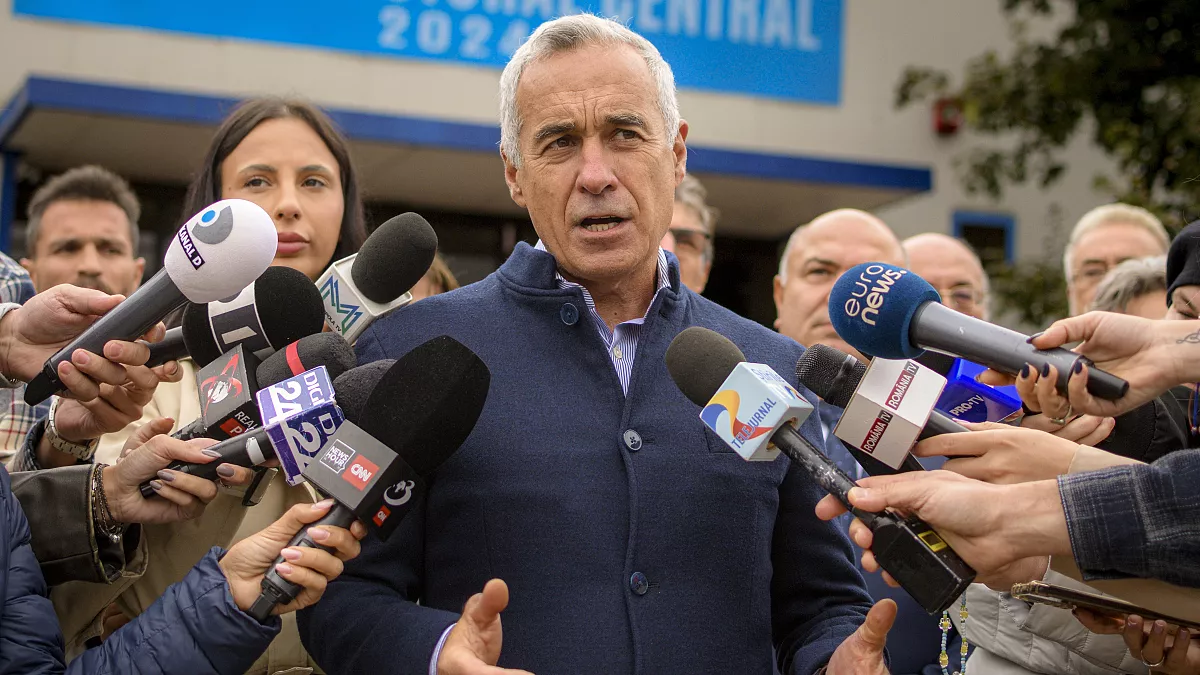A new political intrigue is unfolding in Europe that may impact the situation in the region, including Ukraine. In the first round of presidential elections in Romania, the pro-Russian far-right candidate Kalin Georgescu unexpectedly won. This result came as a shock to many, as sociological forecasts did not give him serious chances of winning.
Who is Kalin Georgescu?
Kalin Georgescu is an independent politician who received 22.95% of the votes, which is equivalent to the support of over 2.1 million voters. His positions are causing concerns among pro-European forces as Georgescu openly sympathizes with Russia. Political experts emphasize that this breakthrough indicates the growing influence of populists and far-right movements in Romania.
Surprise of the first round
Sociological surveys before the elections predicted the leadership of the incumbent Prime Minister Marcel Cholak, as well as the leader of the far-right party AUR, George Simion. According to exit polls, Georgescu had only 16% of the votes, but the vote count showed a completely different picture.
This caused a wave of discussions in the media and among political experts. Some, including political commentator Radu Magdin, called such a gap between forecasts and results unprecedented since the fall of communism in Romania.
Suspicions of Russian interference
Political scientist Sergiu Mișcoiu expressed the opinion that the influence of Russia cannot be ruled out. Georgescu holds a position that contradicts the interests of Ukraine, and his success may be the result of Kremlin’s covert support.
Struggle for the future of Romania
The second place in the elections was taken by pro-European candidate Elena Laskoni, who represents the opposition party “Union for the Rescue of Citizens”. She received 19.17% of the votes, while Prime Minister Cholaku received 19.15%. In the second round, Laskoni has the chance to unite pro-European forces to stand against Georgescu.
These elections have become not only a competition between candidates but also a geopolitical confrontation. Laskoni’s success will depend on her ability to attract voters of other pro-Western politicians and mobilize the electorate.
Why is this important for Ukraine?
Georgescu’s success could pose a challenge for Ukraine, as a pro-Russian president in Romania could potentially support the Kremlin’s position in international affairs. This could affect regional stability and cooperation within the European Union.
It is important for Ukraine to monitor the situation, as Romania is a neighbor and partner on whom the security of the southwest border depends.
What’s next?
The second round of elections will be a crucial moment for Romania. It will determine whether the country continues its course towards European integration or chooses a political path that could undermine the unity of the EU and NATO. For Ukraine, as well as for Europe as a whole, these elections will have a significant impact, and the results of the second round will be closely monitored not only in Bucharest but also in Kyiv, Brussels, and Washington.


